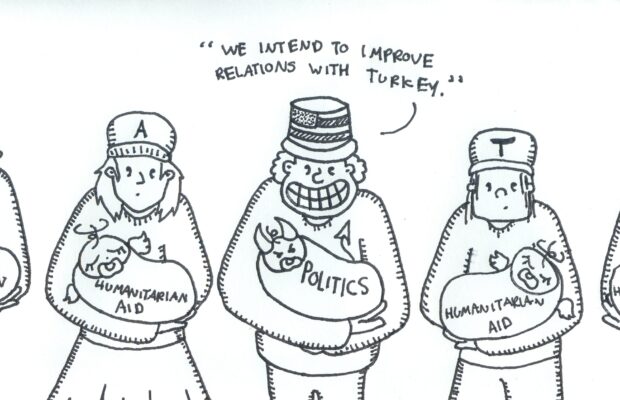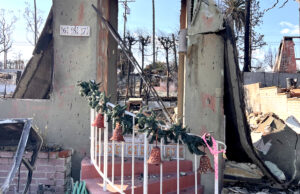The U.S. needs to put more effort into helping Turkey

On Feb. 6, a 7.8-magnitude earthquake hit Gaziantep, Turkey (Türkiye), and on Feb. 20, a 6.3-magnitude hit the southern part of Turkey. This pushed the death toll from the earthquakes past 47,000, making these events the deadliest natural disasters in history. There are reports of over 87,000 injuries and over 47,000 destroyed buildings. On Feb. 7, before the second quake, the US Department of Defense sent two search and rescue teams to Turkey to aid in locating survivors as well as providing $185 million in relief funds, but that’s the last of the support that Turkey received from the U.S., even after the death toll doubled after the second quake.
If America wishes to cultivate allyship with other countries, it needs to snap out of its self-involvement. It has the capacity to send relief items to people who are coping with devastation. Turkey’s government certainly won’t examine the U.S.’s petty uninvolvement and feel inspired to sever ties with Russia. As a wealthy superpower of a country, the US has every opportunity to step up and help a fellow ally, but we’re too caught up in a need for political gain to be of any service.
Turkey has been a member of the North Atlantic Treaty Organization (NATO) since 1952, so it’s no surprise that many other countries have stepped in to aid Turkey’s government while they recover from these earthquakes, considering NATO’s agreement includes a promise of security alliance from the other countries, including the U.S.
The leading theory as to why the U.S. is hesitant to help is due to Turkey’s relationship with Russia, the instigator in the deadly invasion of Ukraine. Of all the members of NATO, Turkey is by far the friendliest with Russia, even purchasing a defense system from them in Jan. This is the speculated barrier preventing the U.S. from giving Turkey the aid they desperately need. However, the U.S. still claims that it intends to improve its relationship with Turkey.
Individuals have lost their homes, families, jobs and livelihoods to catastrophic earthquakes. Yes, Turkey still has a relationship with a corrupt superpower, but it is also filled with refugees. As of the beginning of 2023, Turkey currently hosts over three million refugees from Iran, Iraq, Ukraine, Syria and Afghanistan, all of which have horrific political or religious events that are affecting lives throughout their countries.
The condemnation of Turkey’s citizens as “guilty by association” is a scapegoat for the U.S.’s narcissism. It’s easy to pretend Turkey is full of Russia-apologists who are content with the relationship, and even if that was true, sometimes the situation should trump the belief. This shields the ugly truth- that the United States tends to only exercise compassion when it comes with political traction. If we do not expect to gain significantly in the future, we tend to not step in, which is what we’ve seen with other countries who’ve had similar issues, considering that the U.S. is known for being the leader in providing international relief.
The U.S. needs to switch its focus to the mothers, fathers, sons, and daughters struggling to survive. Turkey’s government won’t face the brunt of political apathy. But, the individuals living there certainly will.



